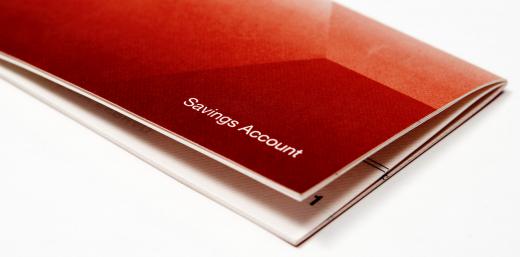At SmartCapitalMind, we're committed to delivering accurate, trustworthy information. Our expert-authored content is rigorously fact-checked and sourced from credible authorities. Discover how we uphold the highest standards in providing you with reliable knowledge.
What is a Savings Deposit Account?
A savings deposit account is a type of bank account in which a person can deposit his or her money and have it earn interest. The savings deposit account is usually limited in several ways, including how many times a person can make transactions from the account, or in some cases how many times a person can make a deposit into the account per month. Banks, credit unions, and other financial institutions can offer a savings deposit account to their customers, and unlike a checking account, the process of depositing or withdrawing money from the savings account can be more involved and often necessitates a trip to the bank or credit union.
The amount of interest one can earn on a savings deposit account varies from institution to institution. Some institutions offer more interest as the monetary amount of the savings account rises. Conversely, some banks or credit unions will charge a fee if the dollar amount of the account falls below a certain point. Still other accounts can earn higher interest through promotions run by the financial institution or by opening more than one account. Many banks now allow two accounts to be linked — a checking and a savings account, for example — and the funds in one account can cover overdrafts of the other account.

Opening a savings deposit account is usually quite easy. A visit to the bank or credit union is often all it takes, and a bank associate will help the customer decide which deposit account is best for him or her. Children under the age of 18 often need an adult to open the account for them, as well as to make transactions such as deposits and withdrawals. Most banking institutions require some form of identification in order to open the account. The customer will then make his or her first deposit into the account and receive an account number in return. This account number will allow the customer to access the account at any time.

Many institutions only require a small monetary deposit to open the account. The customer can then add funds to the savings deposit account at any time. The more money that goes into the account, the more interest the account will earn. Some institutions require the amount of money in the account to be over a certain amount for the account to stay active, so a potential customer should inquire about the specific requirements before opening the account.
AS FEATURED ON:
AS FEATURED ON:












Discuss this Article
Post your comments